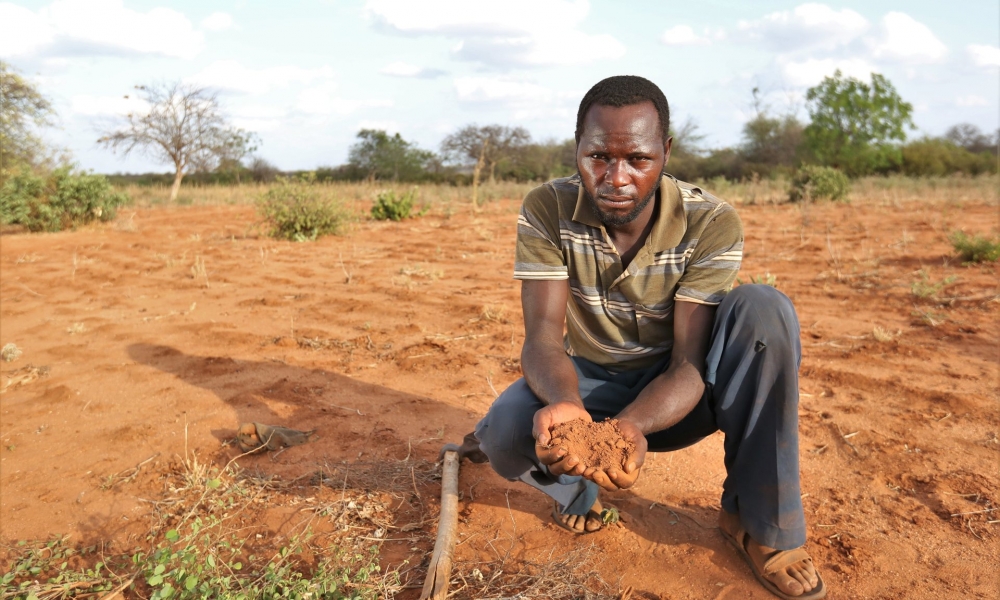If Farmers cannot Farm, who will Feed the Hungry?

Whilst the world’s population is increasing due to the rise of climate change, global food production will decline drastically up until 2050, according to the International Food Policy Research Institute (IFPRI).
Ultimately the world needs to understand how poverty, climate change and hunger can be tackled together. Is climate-smart agriculture a strategy that recognises the link between all three?
Climate-smart agriculture (CSA) “supports UN Food and Agriculture Organization (FAO) goal to make agriculture, forestry and fisheries more productive and more sustainable". It can help farmers adapt and be resilient to the changing climate by encompassing technology, policies, practices and investments. Farmers are at the forefront of the weather changes and are already facing the challenges from insects and plant diseases, as well as floods, droughts and rising sea levels
Agriculture generates tonnes of CO2 and, paired with other land-use activities, it accounts for 24% of human-related greenhouse gas emissions. This is where CSA steps in by supporting food security with the use of sustainable agriculture practices and latest technologies, which pose less harm to the environment. It also assists farmers, researchers, private sector, civil society and policymakers by reducing the impact of climate change on the output of agricultural practices. .
Over 500 million smallholder farmers provide food for 80% of the people living in the low income countries that are being heavily affected by climate change. Drought is affecting 23 out of Kenya’s 47 counties and the trend is similar in many East African countries. Climate change means, drought will continue, the shortage and a lack of access to food will result in more people not receiving the nutrients they need.
With 800 million undernourished people around the world it is imperative that African governments “increase their expenditure on developing meteorological stations required to deliver necessary information to the farmers,” says Dr Anthony Nyong, Director for Climate Change and Green Growth at the African Development Bank. Failure to do so will have a big impact on Africa not meeting its food security goals.
"Current food systems have been shown to be inefficient to eradicate hunger in the world," said Jose Graziano da Silva, FAO Director-General. To effectively combat food and nutrition issues in the world with changing climate conditions, farmers need to be informed and provided with the resources and technology that CSA can provide. He believes that "the future of agriculture is not input-intensive, but knowledge-intensive.”
Although CSA is one innovative way to help farmers, Peter Odhengo, Senior Policy advisor for the National Treasury states that “it cannot be the only solution to food insecurity as it requires a number of interventions, but it is key and could have solutions, especially to mass starvation in Kenya.”
To learn more about the sustainable agricultural transformation in Africa, join the Climate Smart Agriculture Congress on 6-7 March 2018 in Nairobi, Kenya. The congress will look into innovative financing, capacity building, partnerships and the use of technology to advance climate-smart agriculture practices in the region.
Hear from expert speakers including Gabriel Rugalema, Representative of the FAO Kenya, Noelle Obrien, Team Leader of the Finance Innovation for Climate Change Fund, Iddo Dror, Head, Capacity Development, International Livestock Research Institute (ILRI), James Mutonyi, Managing Director, Agmark and Yona Baguma Deputy, Executive Director at the National Agricultural Research Organisation amongst others. To view full list of speakers, please click here.
To learn more about the Africa Climate Smart Agriculture Congress, visit http://csa-africa.aidforum.org or email Alina O’Keeffe, Head of Marketing, Aid & International Development Forum at marketing@aidforum.org
Image Source: Small Holder Farmer Alliance













